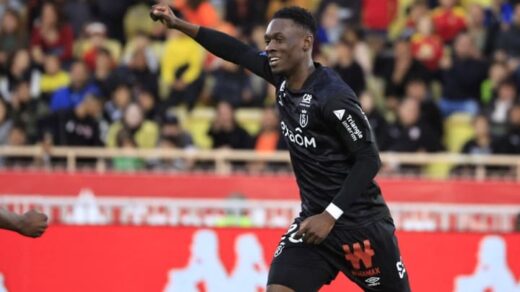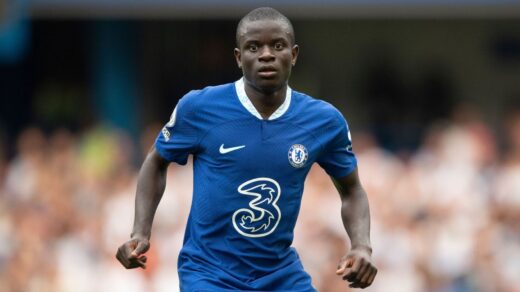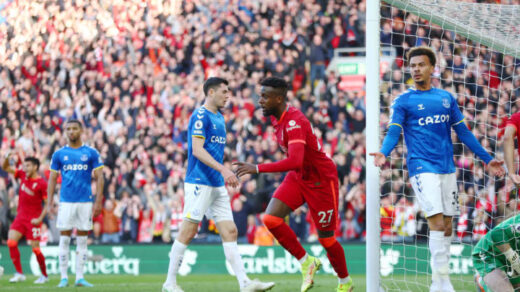There have been points this season when we’ve had cause to doubt the wisdom of appointing Gary O’Neil as Bournemouth manager, but he’s proving us wrong.
It says something for the achievements of Gary O’Neil at Bournemouth this season that their 4-0 home defeat by West Ham United was such a surprise; there have certainly been plenty of points during this season when it would have been entirely expected. As recently as the start of March, they were bottom of the Premier League table after losing at Arsenal, and with one win in their ten league matches since clubs returned to action following the World Cup.
That game was notable for Bournemouth scoring the second-fastest ever Premier League goal and for Arsenal clawing their way back to a 3-2 win after trailing 2-0 with 18 minutes to play. But while losing a match from this sort of position could have been a final shattering psychological blow to a team whose form hadn’t exactly been great to start with, this match seems to have had something of a galvanising effect on them instead.
Bournemouth followed the Arsenal game with a 1-0 win against Liverpool, quite a turnaround against a team who put nine goals past them without reply at the end of August. Since then, they’ve hardly been paragons of consistency with three wins and three defeats, but two of those losses came against in-form Aston Villa and 2023’s golden boys Brighton, while the wins have included a 2-1 home success against eighth-placed Fulham and a 3-2 win at Spurs, a game which required a last-gasp winning goal but which they deserved to win over 90 minutes against a disjointed home side.
And all of this leads us to one conclusion. F365 – okay, okay, I – may have called the decision to appoint O’Neil the eventual permanent successor to Scott Parker… wrong. Now, allow me a moment of self-justification here. The above piece was written on the Monday morning after Bournemouth had lost 1-0 at Brighton, a result which took their post-World Cup run of form to one point from six matches, while O’Neil’s essential rookiness made him somewhat more difficult to read than, say, a manager who had become the intersection at which Tim Sherwood and David Brent meet.
Mea culpa indeed, but time makes fools of us all. The transformation of the team since they found their feet against Liverpool has been marked, if not quite dramatic. One example of how improvement can almost fly under the radar has been the performances of Dominic Solanke this season.
Solanke may be a forward who’s only scored six goals in all competitions after scoring 29 as Bournemouth were promoted, but Solanke is more of a player than ‘just’ a goalscorer, and his contribution to the team’s season has been paramount. Others have started to flourish, too. Phil Billing, for example, has been impressive and remains their top scorer this season with seven goals from midfield, while January signing Dango Ouattara has begun to flourish.
O’Neil seems to have built a degree of resilience into his team. His first game in charge of the team came at the end of an extremely difficult week for the club, having just lost 9-0 at Liverpool and the manager who got them promoted. But he led his team to a valuable clean sheet in his first match in charge with a goalless draw at Wolves, the first of a six-game unbeaten run, by the end of which they were ensconced in mid-table.
This was followed by straight defeats but their last game before the World Cup interregnum was a very convincing 3-0 win against a ramshackle Everton team to follow up a 4-1 win against them just a few days earlier in the EFL Cup. The Spurs performance – coming back from the disappointment of conceding an equalising goal two minutes into stoppage-time to reclaim all three points in the game’s last seconds – was a further demonstration of this backbone.
Their next game will be another test. Southampton look like they’ve run aground at the bottom of the Premier League table with a run of seven games without a win, but the stakes are high, and while Bournemouth could never replace Portsmouth in the order of local rivalries in that part of the world, there’s still a little space for that edge to manifest itself at a time when Southampton’s more traditional local rivals are continuing to labour two divisions below them.
Although there has been an upswing in their form since their post-World Cup trough, Bournemouth remain far from safe. At the press conference prior to the West Ham game O’Neil acknowledged this, stating that, “We understand that we’re still in a scrap to make sure we’re in this division next season.” Bournemouth are on 33 points and are in 15th place in the Premier League table. They’re only four points above the relegation places – the gap between them and bottom-placed Southampton is a rather more impressive nine – and even though there are only six games of the season left to play, that’s no guarantee of safety in a division the hallmark of which has been degrees of inconsistency across its entire bottom half.
And staying in the Premier League is important to Bournemouth because getting promoted back there was expensive. The club’s recently published accounts for the 2021/22 season showed a loss of £55.5m. The club explained this as, ‘mainly… a concerted effort to get back to the Premier League in its second season away’, but the numbers tell their own story.
When you’re playing in the Premier League in a stadium which holds 11,000 people, broadcasting revenues are all-important. The EFL is littered with clubs who fell from the Premier League and found themselves unable to regain their balance without a nine-digit sum being pumped into their bank account to act as a security blanket. Bournemouth avoided that dread scenario last time they were relegated, but there are few guarantees of getting back into the Premier League following relegation.
A failure to win at Southampton would not be a disaster for Bournemouth. It may be fairly thin, but there is still a cushion between them and the relegation places, while they still have to play Leeds and Everton in among the five games they have left after their trip to St Mary’s. But Gary O’Neil sppears to have the buy-in of the players, and that counts for a lot. While there may be those who still consider the decision to have given him this position on a full-time basis to have been an error of judgement on the part of the club, O’Neil may have already set up his team to prove them wrong too.




